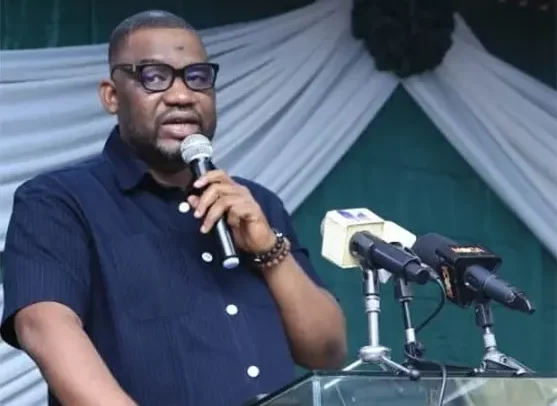Abdul-Moomin Gbana
The General Secretary of the Ghana Mineworkers’ Union of the TUC, Abdul-Moomin Gbana, has revealed that as of the end of 2024, over 90% of the mining sector’s workforce is engaged in non-standard forms of employment, with standard or permanent employment accounting for only about 10%.
He attributed this development to ongoing transformational changes in the country’s mining labour market, which have triggered a marked shift from standard employment to non-standard arrangements, including temporary work, casualisation, and fixed-term contracts.
Speaking at the Union’s National Executive Council meeting at the Gold Fields Akoon Clubhouse in Tarkwa, Mr. Abdul-Moomin said the shift, driven by production fragmentation, outsourcing, and policy reforms, had led to reduced job protection, heightened uncertainty, and increased workplace risks for miners, a trend he described as “retrogressive.”
“There has been a surge in workers’ and trade union rights violations, shrinking collective bargaining coverage, job insecurity, threats to social protection, and fluctuations in income and pensions,” he lamented.
He criticised the growing trend of outsourcing key mining operations under cut-throat contract prices in the name of profit maximisation, warning that it undermines the decent work agenda and impoverishes union members.
“Astonishingly, this continues to happen at a time when the business environment is highly favourable, with gold prices hitting record highs. Such conditions should translate into improved well-being for workers, but this is not the case. While certain ancillary or non-core aspects of mining can be farmed out, the core business for which a company is licensed should never be outsourced,” he stressed.
Mr. Abdul-Moomin further cautioned that “under the guise of local content, these exploitative strategies continue to be pursued with impunity.”
He reiterated the union’s firm opposition to such practices, insisting that mining companies must take full responsibility for the core business of mining, including associated employee costs, as required by law.
He urged government and industry stakeholders to recognise the negative consequences of the trend, warning that it poses serious risks to the mining industry’s long-term stability.
The Secretary General of TUC-Ghana, Joshua Ansah, affirmed the TUC’s commitment to the welfare of miners, noting the importance of collective action in addressing their challenges.
“The TUC Ghana is committed to supporting the Ghana Mineworkers’ Union in its efforts to improve working conditions, promote occupational health and safety, and advocate for the rights of miners,” he said.
By Prince Fiifi Yorke


